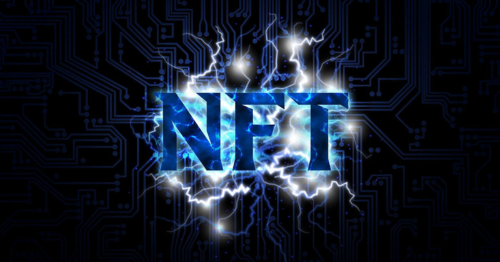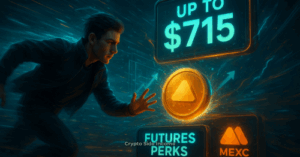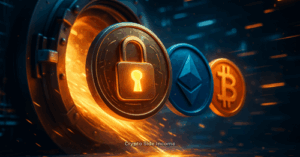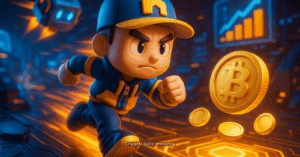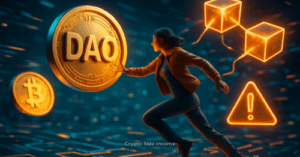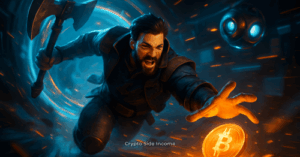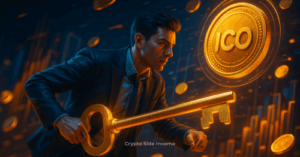What is an NFT? Explained Clearly Without the Hype. The term “What is an NFT?” has surged across online searches, confusing many and fascinating others. From digital art to gaming assets, NFTs have carved a unique niche in the blockchain ecosystem. But what really are NFTs, and what makes them so valuable in today’s digital world?
This comprehensive post we will break down the concept of NFTs, how they function, why they matter, and what risks or benefits come with them.
Understanding the Basics: What is an NFT?
NFT stands for Non-Fungible Token. To understand “What is an NFT?” in simple terms, think of it as a unique digital certificate of ownership backed by blockchain technology. While coins like Bitcoin or Ethereum can be traded equally because they’re interchangeable, NFTs are completely unique and can’t be swapped one-for-one.
They’re mostly used to represent ownership of:
- Digital artwork
- Music files
- Virtual land
- In-game items
- Memes or viral content
- Event tickets or collectibles
The core value of NFTs lies in their proof of originality and ownership, secured on a decentralized blockchain ledger.
How Do NFTs Work?
NFTs are made using special programs called smart contracts, mostly on blockchains like Ethereum. These smart contracts define:
- Ownership
- Transferability
- Metadata (e.g., artwork title, artist, link to file, etc.)
Each NFT has a unique identifier and metadata that distinguishes it from every other token. When someone asks, “What is an NFT?”, the underlying tech is a digital contract ensuring the asset’s authenticity and traceability.
Key Characteristics of NFTs:
- Indivisibility: You can’t split an NFT into smaller parts.
- Scarcity: Most NFTs are created with limited supply.
- Interoperability: Can be used across multiple platforms and marketplaces.
- Provenance: Full ownership history is stored on the blockchain.
Real-World Applications of NFTs
To go deeper into “What is an NFT?”, it’s essential to explore its real-world applications.
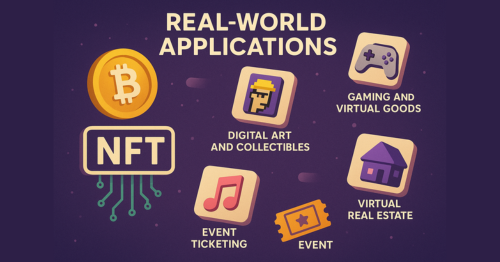
1. Digital Art and Collectibles
Artists use NFTs to tokenize their digital creations and sell them directly to buyers, removing intermediaries. Buyers receive proof of authenticity, and artists can earn royalties on secondary sales.
2. Gaming and Virtual Goods
NFTs are used to own in-game items, characters, or skins. Unlike traditional games, players can trade or sell these items on open marketplaces.
3. Music and Entertainment
Musicians release NFT albums, allowing fans to purchase ownership of limited-edition tracks or exclusive backstage passes.
4. Virtual Real Estate
Platforms like Decentraland and The Sandbox offer digital land as NFTs, which users can buy, sell, or lease.
5. Event Ticketing
NFTs are being adopted for event ticketing to reduce fraud and enable verifiable ownership.
Why Are NFTs So Valuable?
The value of an NFT lies in:
- Digital ownership: It means you can prove that a specific digital item truly belongs to you.
- Scarcity: Limited-edition releases increase demand.
- Community and cultural status: Some NFTs are perceived as status symbols within online communities.
- Speculation: Many view NFTs as investment assets expecting price appreciation.
People often search for “What is an NFT?” after seeing headlines about million-dollar sales or viral digital assets. While some NFTs have appreciated tremendously, not all hold or increase their value.
The Technology Behind NFTs
NFTs rely heavily on Blockchain infrastructure, with Ethereum being the most popular chain. Others like Solana, Polygon, and Flow have also gained traction due to faster speeds and lower fees.
Smart contracts power every NFT transaction and ensure:
- Ownership is recorded permanently
- Royalties are automatically paid to creators
- Transfers are secure and trustless
When someone says, “I want to understand what an NFT is,” it’s crucial to realize it’s not just about art, it’s a technological innovation reshaping digital ownership.
Are NFTs Safe?
NFTs are secured by the blockchain, which makes forgery nearly impossible. However, safety depends on:
- Where you store your NFTs: Use secure digital wallets like MetaMask.
- Scams and phishing attacks: Avoid clicking unknown links or signing suspicious transactions.
- Market volatility: NFT values can fluctuate rapidly.
Anyone curious about “What is an NFT?” must also understand these risks before investing.
Common Myths About NFTs
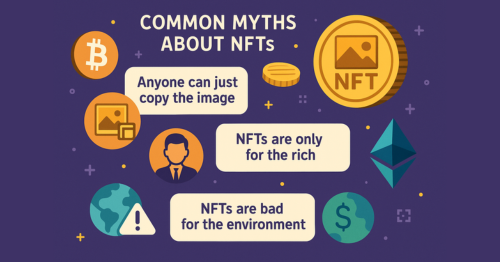
Let’s debunk some frequent misconceptions:
- “Anyone can just copy the image.” True, but they won’t own the verified NFT on the blockchain.
- “NFTs are only for the rich.” While some are expensive, many are affordable and accessible.
- “NFTs are bad for the environment.” While Ethereum had energy concerns, the network now uses Proof-of-Stake, significantly reducing energy consumption.
NFTs and Community Engagement
Another important aspect to consider when asking “What is an NFT?” is the role of community. Many NFT projects thrive not only due to their digital assets but because of the strong communities they build. Ownership often comes with membership perks, early access to drops, participation in governance, or private events.
For creators, this is a way to engage directly with their audiences and build long-term loyalty. For collectors, it’s a chance to be part of something bigger than a simple transaction, a shared culture or digital movement.
As NFTs continue to develop, the line between utility and ownership is becoming more defined, opening doors for brands, musicians, and creators to offer real-world benefits through tokenized digital interaction.
How to Buy an NFT?
If you’re new and wondering “What is an NFT and how do I get one?”, here’s a basic flow:
- Create a digital wallet (e.g., MetaMask)
- Purchase cryptocurrency (typically ETH)
- Connect your wallet to an NFT marketplace (e.g., OpenSea)
- Browse, bid, or buy NFTs
- Your purchased NFT will appear in your wallet
Always double-check authenticity before making a purchase.
Future of NFTs: What Lies Ahead?
The concept of “What is an NFT?” will evolve beyond art. Future developments include:
- Tokenized real-world assets (like real estate deeds)
- Government-issued identity tokens
- NFT integration with AI and metaverse platforms
- Legal contracts and licensing automation
As the technology matures, NFTs may become a fundamental component of digital ownership, far beyond speculation or collectibles.
Conclusion
So, what is an NFT? It’s a groundbreaking way to own, trade, and prove the authenticity of digital content. NFTs bring trust, transparency, and uniqueness to an otherwise copy-and-paste digital world. Whether you’re an artist, gamer, collector, or investor, understanding NFTs is crucial to navigating the future of digital ecosystems.
NFTs are more than hype, they’re a shift in how we define value and ownership online.
Frequently Asked questions
What is an NFT in simple terms?
An NFT (Non-Fungible Token) is a unique digital asset that proves ownership of something digital, like art, music, or video, using blockchain technology. Unlike cryptocurrencies such as Bitcoin, NFTs cannot be exchanged one-to-one because each token is distinct and holds individual value.
How is an NFT different from cryptocurrency?
NFTs and cryptocurrencies both use blockchain technology, but they serve different purposes. Cryptocurrencies are fungible, meaning one unit is equal to another (e.g., 1 BTC = 1 BTC). In contrast, NFTs are non-fungible, meaning every token is unique and can represent ownership of a specific digital item.
Are NFTs a good investment?
NFTs can be a good investment for some, but they are highly volatile and speculative. While certain NFTs have appreciated in value, others have declined. Always do thorough research and understand the project, utility, and creator behind the NFT before investing.

I work as a content writer in the blockchain and cryptocurrency domain. I have a keen interest in exploring the world of digital assets, Web3, and emerging crypto technologies. My goal is to provide readers with easy-to-understand, engaging, and trustworthy insights, helping them stay informed and confident in the rapidly evolving world of crypto and blockchain.

